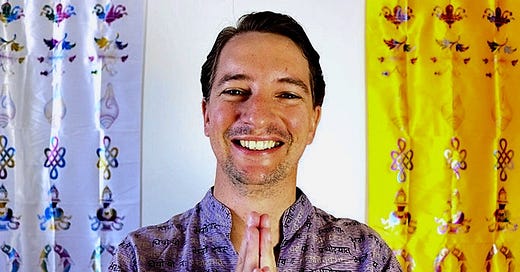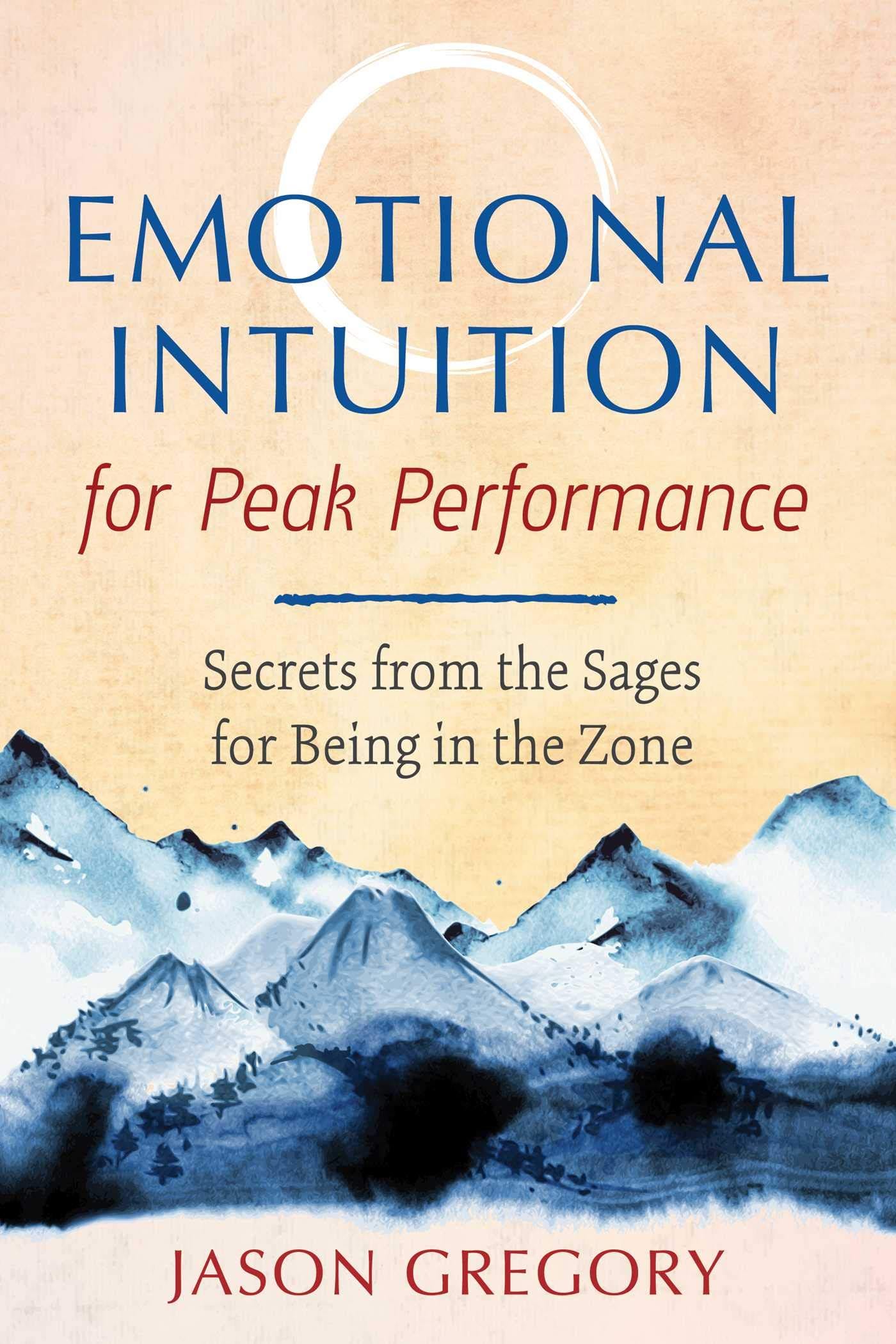The “Wu Wei” of Author Jason Gregory
I’ve long been fascinated with the Taoist concept of Wu Wei best defined as “effortless action” or “action through inaction.” It reflects my natural tendency to allow life’s inherent conflicts to resolve themselves naturally and spontaneously — with little or no poking or interference. The common vernacular for the state is called “going with the flow.”
One of my favorite authors, Jason Gregory, believes that mastery of the world is inextricably tied to allowing things to take their natural course. In his latest book entitled “Emotional Intuition for Peak Performance,” he documents the “lifestyle technology” of world-class artists and athletes in their quest to reach peak performance. Through this, he shows you how to harness the ability to enjoy intelligent spontaneity and peak optimal performance in life.
I reached out to Jason who was kind enough to share his deep insights into the world of peak lifestyles. Here’s what he had to share:
What was your main source of inspiration in writing your most recent book “Emotional Intuition for Peak Performance?”
The main source of inspiration behind this book was how being in a state of Wu-Wei (nondoing/effortless action/intelligent spontaneity) combined with recent discoveries in cognitive science seamlessly can combine to achieve a peak state of performance. We commonly refer to this as "being in the zone."
Can you describe your own personal journey with the Wu Wei lifestyle?
Sure. I became aware of this state of being in the zone personally through my own development as a writer and teacher. This made the whole process of writing this book even more intimate because it reflected my own experiences. For as long as I can remember, I was always fascinated how both the Tao Te Ching and the Chuang-tzu text explained how Wu-Wei (commonly translated as nondoing) related to effortless action, or what I refer to in the book as intelligent spontaneity.
How does this message compare and contrast from that of your previous two books?
In my two previous books, Fasting the Mind and Effortless Living, I briefly covered the knowledge of being in the zone in relation to both Eastern philosophy and cognitive science. I felt the study needed more time and a whole volume of its own to do the knowledge justice. As a result, my understanding over the years deepened because I was essentially the lab rat testing both the conclusions of these two areas.
What sorts of pivots have you been making personally in terms of your own peak performance regimen amid the new COVID reality?
My life hasn't changed much in general, apart from my ability to travel. But if there has been a slight pivot, it has been that I've exerted myself even more into my own work and daily regimen. I don't like to use the word "opportunity" in relation to COVID, but I've personally used this time well and have been extremely productive, creating a lot more online content for those thirsty for deeper knowledge during this time.
This “time opportunity” has also given me the ability to amass an even deeper reservoir of Taoism knowledge as I hope to next year write the most comprehensive book on Taoism written in modern times. COVID has given me that chance to do more research, meditate more, and dive more into contemplation to make that book a reality
Do you have any advice for those feeling stressed and disjointed during these rapidly changing times?
My advice is to keep a healthy distance from everything going on. Your anxious engagement is causing all sorts of subtle mental health problems. By way of example, a lot of people shame others for not being up to date with the news, especially nowadays. But the ability to know almost everything happening in the world is a relatively new phenomenon.
Just 50 years ago the majority of people in the world didn't have that burden because the media was not so widespread. Being locked into current affairs is the new game in town and is not how it has been throughout our evolution as a species. Our minds are naturally analog, not digital. Our minds were not designed to process so much information, unnecessarily activating our fight or flight response. Our psychosomatic system is overwhelmed.
So it is no surprise that people are suffering. A daily meditation practice (one that you will stick to) can help with this.
Can you offer a bit more about meditation?
The long-term effects of meditation in relation to our nervous system are evident in our behavioral patterns. Instead of being thrown here and there by the world, we become more aware of how our mind reacts to the world on a subtle level.
In three of the major Hindu philosophies—Vedanta, Samkhya, and classical yoga—they describe this meditative transformation through two key Sanskrit terms: viveka (discernment) and vairagya (nonreaction). Harnessing the ability to remain a witness to your mind’s activity for extended periods is viveka. This capability in turn strengthens your ability to not react emotionally, which is vairagya.
Discernment and non-reactiveness change our behavioral patterns, and they are both a by-product of consistent meditation. The benefits of these long-term effects are immeasurable. In our social life, we begin to speak less, listen more, and react less.
But it’s it hard not to react when the realities of the daily world are constantly in our face?
No doubt. There are always social situations with friends, family, colleagues, and others that will press our buttons. Most people are accustomed to reacting emotionally without having the discernment to catch such frustrated emotions. The good news is a daily meditation discipline enhances the ability to not react, allowing certain situations to be as they will be without any need for emotional input.
You will actually become perfectly fine not reacting to negative situations, even in situations where something is being directed at you personally. Your usual offended reaction will lose its pull in your mind.
Meditation gives you the clarity to observe your mind and not overreact to a world always vying for your attention. It is an essential skill for peak performance and fundamental for optimal living. It is very important to gain a grasp of this during our rapidly changing times.
What is your greatest hope in terms of what readers will walk away from this book with?
I want readers to walk away with a more intimate relationship with themselves. We often don't know ourselves due to our hyper-busy lifestyles, which ultimately means we don't know anything about the mind or body we currently exist in.
We have simply become passengers in the vehicle we embody. It should be no surprise, then, that all sorts of problems and illnesses arise as a result. For example, imagine driving a stranger's car in torrential rain with no windscreen wipers. That is how we are often traveling through life. We can drive, but we know nothing about the car nor the terrain, only our vague intuitions about both.
This is where my book steps in. Instead of focusing on one aspect over another, such as meditation, diet, Wu-Wei, etc., I tackle all to give you a roadmap — one that allows you to become perfectly calibrated with your immediate environment. This not only applies to your chosen skill or profession but also translates to life skills and how we can all live life efficiently.
How do we best go about applying the principles you discuss?
What I’m going to ask you to do is strip your life back and stop engaging in the games your mind plays, such as being opinionated and emotionally handicapped by your belief system. Instead, your aim should be to resonate with the natural simplicity at the core of your being that was the gift you were given as a living breathing human.
Any final thoughts?
Everything in this book is designed to help you to be the best version of yourself. The science and strategies explained are the necessary fuel for your greatness. Read it and you’ll come to understand the ancient and modern methods for comprehending the embodied mind, meaning the mind is embodied and the body is mindful. Use the two-system model (hot and cold cognition) to better understand how to develop skill and reach peak performance. Apply the training methods described in this book and remain committed to them.
With a disciplined approach, you will surely take your life to the next level. Your skill will flower, and your peak state of performance will inspire the world. It’s just a matter of committing to living the life you were born to live. It’s time to actualize your full potential. What are you waiting for?





